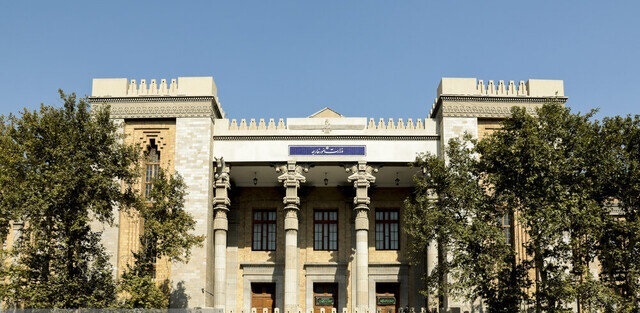Lebanon: Christmas lights installation in Beirut sparks controversy
Lebanon: Christmas lights installation in Beirut sparks controversy

Every year, Lebanese wait with excited anticipation for the capital city's Christmas installation, which sees downtown Beirut lit up with fairy lights, illuminated signage and evergreen decorations.
But when this year's display was unveiled last week, what is usually a celebratory tradition where locals flock to the area to meet friends and take pictures sparked confusion and debate online.
The decorations depart slightly from the style of Beirut’s previous Christmas installations, featuring intricate geometric light structures in colourful arches. While some praised what they called an artistically ambitious and original idea, others likened the designs to Islamic artistic motifs or Ramadan displays, saying it did not suit the Christian holiday.
One user quipped: “This is called two-in-one decorations," adding that the Beirut municipality must have thought that the proximity of Christmas and the Islamic month of Ramadan would be a way to "save some money" on decorations.
Others took a less lighthearted tone, arguing that the display blurs the line between religious celebrations and diminishes Christian visual identity.
One user called it a “blatant assault on the holiday”.
“I don’t know if you'll hear the Iftar cannon or Jingle Bells," the user continued, referring to the customary cannon fired once at sunset to signal the end of a day of fasting during the Muslim holy month of Ramadan.
Translation: “This is called two-in-one decorations, they said let’s save some money, Christmas is close to the month of Ramadan anyways why not combine them, the only problem is that it turned out bad, I’m sorry but no #Lebanon”
Some users even suggested that Sunni Muslim political figures in the city might have sought to deliberately water down Christian symbolism - a claim that many online objected to.
A few observers said the design featured “Eastern Christian” motifs, adding that the decorations were reminiscent of stained glass and church arches.
Other online commentators thought the designers might have drawn inspiration from European Christmas decoration styles in honour of Pope Leo XIV’s upcoming, highly anticipated visit to Lebanon, which is home to the largest Christian population in the region.
British-Lebanese journalist Hala Jaber wrote: "Beirut’s Christmas decorations this year are Luminarie-inspired, mirroring Italy’s Bari, London’s Hyde Park, Málaga’s Christmas lights," and shared several pictures of illuminated arches from different cities.
"Yet, Lebanon’s Christian community wrongly flags this as Christian erasure.
"Sure, this style of decoration may not appeal to everyone’s taste, not sure even to mine, to be honest, but Lebanese must move beyond turning everything & every difference into a sectarian conflict or an act of bigotry," she continued.
Another user shared images of decorations from several other cities around the world, compared the designs, and questioned whether locals in Beirut were “being too harsh on our own [decorations]”.
Others encouraged each other to focus on the spirit of Christmas and unity among Lebanese: "We are one people. Christmas decorations or Ramadan or Easter," said one user.
Others yet said the conversation was misplaced altogether.
"Signing off until everyone realizes how pathetic this 'debate' is in a country that is still being bombed by Israhell daily," said one user, employing a slang term for Israel used by some critics.
Another frustrated person on X agreed:
"It’s unfortunate that a country drowning in pollution, rising cancer rates, security concerns and a suffocating economic crisis… has its public discourse reduced every time to an immediate issue that disappears quickly, only to be replaced by an even more trivial topic, as if the goal is to keep people perpetually distracted by things that change nothing."










